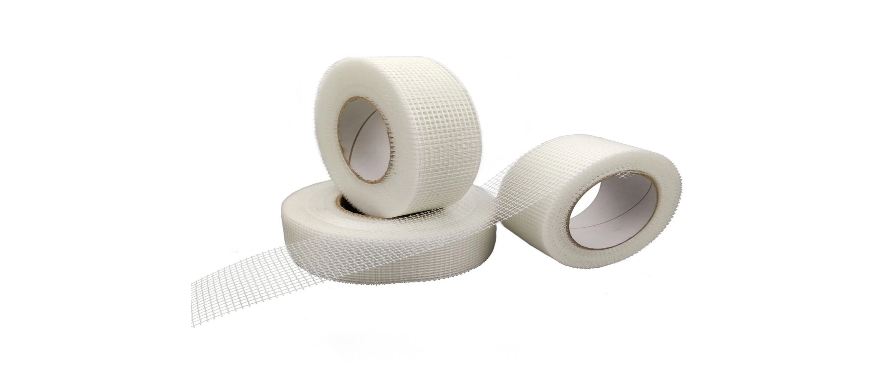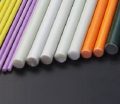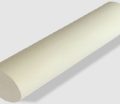
Fiberglass fabric filter bags are essential components in industrial filtration systems, designed to capture particulate matter from air or gas streams. These filter bags are made from high-performance fiberglass fabrics, offering superior filtration efficiency even in the most demanding industrial environments. Their primary role is to improve air quality by trapping harmful dust, fumes, and other pollutants, thus reducing emissions and ensuring compliance with environmental standards. Fiberglass fabric filter bags also optimize industrial processes by preventing the buildup of particulates in machinery, enhancing operational efficiency, and reducing maintenance costs. Widely used in industries such as cement production, power generation, and chemical manufacturing, fiberglass filter fabric play a crucial part in safeguarding both human health and the environment.
What Are Fiberglass Fabric Filter Bags?
Fiberglass fabric filter bags are advanced filtration solutions crafted from woven fiberglass material, specifically designed for industrial air and gas purification systems. These bags excel at capturing fine particulate matter, including dust, soot, and microscopic particles, ensuring cleaner air or gas output in industrial processes. Their robust construction and superior performance make them indispensable for industries requiring reliable and efficient filtration under demanding conditions.
The unique properties of fiberglass fabric provide these filter bags with unparalleled resistance to extreme environments, allowing them to function effectively in temperatures as high as 260°C (500°F). This high-temperature tolerance, combined with their resilience against chemical exposure and mechanical stress, positions fiberglass fabric filter bag as a superior choice for heavy-duty industrial applications.
Key Features of Fiberglass Fabric Filter Bags:
- Durability and Flexibility:
The woven fiberglass fabric offers exceptional durability, ensuring the filter bags can endure prolonged operational cycles without tearing or losing effectiveness. Their inherent flexibility allows them to adapt to the mechanical demands of industrial filtration systems, maintaining peak performance over time. - High-Temperature Resistance:
Designed to operate in high-heat environments, fiberglass fabric filter bag can withstand temperatures up to 260°C without degrading. This feature is critical for applications in industries such as cement production, steel manufacturing, and power generation, where extreme heat is a routine challenge. - Chemical Resistance:
Fiberglass fabric filter bags are engineered to resist a wide array of corrosive substances and harsh chemicals. This chemical resilience makes them ideal for filtration in chemical processing plants, smelting facilities, and other environments where exposure to aggressive agents is common. - Low Filtration Resistance:
Despite their strength, fiberglass fabric filter bag maintain excellent permeability, promoting efficient airflow while effectively trapping fine particulates. This balance between filtration efficiency and operational performance ensures optimal system functionality.
These attributes make fiberglass fabric filter bags vital for numerous industries, helping to improve air quality, safeguard sensitive equipment, and comply with stringent environmental regulations. Their ability to perform reliably in the face of harsh conditions and diverse challenges underscores their value as a cornerstone of modern industrial filtration systems.
Easy Steps: How to Waterproof Fiberglass Chop Strand Mat
Key Properties of Fiberglass Fabric Filter Bags
Fiberglass fabric filter bags are specifically designed to meet the rigorous demands of industrial filtration systems. Their unique composition and properties make them highly effective in capturing fine particulates while maintaining efficiency and durability in harsh environments. Below are the key properties that make fiberglass filter cloth a preferred choice for many industries.
High-Temperature Resistance
One of the standout features of fiberglass fabric filter bags is their remarkable ability to withstand extremely high temperatures. These bags can function effectively in environments that experience temperatures up to 260°C (500°F). This property makes them particularly well-suited for demanding applications such as power plants, cement kilns, and other industries where heat is a significant factor in the filtration process.
Low Filtration Resistance
Fiberglass fabric filter bag are designed to allow air to flow efficiently while still trapping fine particulates. This low filtration resistance helps to maintain optimal airflow and prevents excessive buildup of pressure, ensuring that the filtration system operates smoothly and with minimal energy consumption. This makes them an energy-efficient choice for industrial air filtration.
Chemical Resistance
In addition to high-temperature resistance, fiberglass fabric filter bags are highly resistant to chemical degradation. These bags can withstand exposure to both acidic and alkaline environments without losing their structural integrity. This makes them ideal for industries such as chemical processing, pharmaceuticals, and mining, where corrosive chemicals are often present in the air or gas streams being filtered.
Abrasion Resistance
Fiberglass fabric filter bag offer excellent abrasion resistance, which ensures long-term durability in tough working conditions. The woven fiberglass material resists wear and tear from constant exposure to particulate matter, extending the lifespan of the filter bags. This property makes them a cost-effective choice for industries where high levels of abrasion are common, such as cement production and steel manufacturing.
Customizability
Another significant advantage of fiberglass fabric filter bags is their versatility. These bags are available in a range of sizes, thicknesses, and configurations to meet the specific requirements of different filtration systems. Customizable options allow industries to select the most appropriate filter bag for their particular needs, ensuring optimal performance and efficiency.
The key properties of fiberglass fabric filter bag—high-temperature resistance, low filtration resistance, chemical resistance, abrasion resistance, and customizability—make them an essential component in maintaining air quality and protecting industrial equipment across various sectors.
Where to Buy Fiberglass Chopped Strand Mat Near Me
Types of Fiberglass Fabric Filter Bags
Fiberglass fabric filter bag come in various types to suit the specific needs of different industrial applications. Each type offers unique benefits that enhance filtration performance, improve efficiency, and ensure longevity under challenging conditions. Below are the most common types of fiberglass fabric filter bags and their key features.
Standard Fiberglass Fabric Filter Bags
Standard fiberglass fabric filter bag are designed for general-purpose filtration in a wide range of industrial settings. These bags are suitable for applications such as cement manufacturing, power plants, and other industries that deal with coarse to medium particulate matter. Made from woven fiberglass material, they provide excellent durability and resistance to high temperatures, making them ideal for capturing larger particles while maintaining a steady airflow.
The simplicity and efficiency of standard fiberglass fabric filter bags make them a cost-effective choice for many industrial environments. They are often used in conjunction with other filtration technologies to optimize particulate capture and air quality control in industries where high-temperature resistance is a priority.
PTFE-Coated Fiberglass Fabric Filter Bags
For environments where dust is sticky, corrosive, or prone to clinging to the filter surface, PTFE-coated fiberglass fabric filter bag are an excellent solution. PTFE (polytetrafluoroethylene) is a high-performance material known for its low surface friction and excellent chemical resistance. When applied as a coating over fiberglass, PTFE provides enhanced resistance to both chemical attack and dust adhesion, preventing clogging and ensuring consistent filtration efficiency.
These fiberglass fabric filter bag are particularly effective in applications that involve sticky dust, fumes, or other challenging particulate types. Industries such as chemical processing, food production, and pharmaceuticals often rely on PTFE-coated bags for their ability to withstand harsh environments while maintaining superior filtration performance.
High-Efficiency Fiberglass Fabric Filter Bags
High-efficiency fiberglass fabric filter bag are specifically engineered for the capture of sub-micron particulate matter, making them ideal for applications where precision filtration is required. These bags utilize advanced filtration technology and fine-fiber construction to trap very fine particles that would otherwise pass through standard filter bags.
Used in industries that need to meet stringent air quality standards, such as pharmaceutical manufacturing, food processing, and electronics production, high-efficiency fiberglass fabric filter bags provide exceptional particle retention. These bags are designed to achieve superior filtration performance while maintaining low resistance to airflow, which reduces energy consumption and ensures long-term operational efficiency.
The different types of fiberglass fabric filter bag—standard, PTFE-coated, and high-efficiency—each offer specific advantages based on the type of filtration needed. From general-purpose applications to highly specialized environments, selecting the right type of fiberglass fabric filter bag ensures optimal filtration performance, durability, and efficiency, helping industries meet environmental regulations and enhance their operational processes.
Affordable Fiberglass Chopped Strand Mat for Sale Online
Applications of Fiberglass Fabric Filter Bags
Fiberglass fabric filter bags are integral components in various industrial filtration processes. Their excellent heat resistance, durability, and ability to handle fine particulates make them indispensable across several sectors. These bags are widely used in applications where efficient particulate removal is critical for both operational performance and compliance with environmental regulations.
Industrial Sectors
Power Generation Plants
In power plants, especially coal-fired and gas-fired plants, fiberglass fabric filter bag are used for dust collection and air pollution control. These facilities emit large volumes of particulate matter, which must be filtered to ensure clean emissions. Fiberglass fabric filter bags can withstand the high temperatures and harsh conditions in these environments, making them ideal for handling flue gas dust, ash, and other pollutants. Their ability to perform efficiently in these conditions helps power plants meet regulatory standards for air quality.
Cement and Lime Production
Cement and lime production involve processes that generate substantial dust and particulate matter, which can be harmful to both workers and the environment. Fiberglass fabric filter bag are commonly used in baghouse filtration systems in cement plants, where they efficiently capture fine particulates from the air. These bags provide long-lasting performance in the hot, abrasive, and chemically challenging conditions often found in cement production.
Chemical Processing Facilities
In chemical processing, fiberglass fabric filter bags are essential for managing airborne contaminants, dust, and fumes that can result from various chemical reactions. Whether it’s the production of fertilizers, plastics, or pharmaceuticals, these bags are capable of filtering hazardous chemicals and particulates at high temperatures. Their resistance to corrosion and chemicals makes them indispensable in these environments, helping to maintain air quality and meet stringent regulatory requirements.
Specific Uses
Dust Collection in Baghouses
Fiberglass fabric filter bags are a critical component of dust collection systems in baghouses, which are used in numerous industries to capture airborne dust and particulates. These filter bags efficiently trap dust from the air stream, preventing it from being released into the environment. Baghouses equipped with fiberglass fabric filter bags are used in industries like mining, agriculture, and metalworking to ensure that operations comply with environmental standards while protecting the health of workers.
Air Pollution Control
One of the most significant uses of fiberglass fabric filter bags is in air pollution control systems. These bags help reduce emissions by capturing harmful particulates and pollutants from industrial exhaust streams before they are released into the atmosphere. Their ability to filter fine particulates, even in high-temperature environments, makes them invaluable in industries like waste incineration, petrochemical production, and metal smelting.
Gas Filtration in Smelting and Steel Industries
In smelting and steel production, fiberglass fabric filter bags are used for capturing gases and fine dust created during metal extraction processes. These bags are particularly suited for high-temperature environments where they can effectively trap molten metal dust, fumes, and other harmful particles that result from smelting and alloy production. Their durability and heat resistance ensure that they provide consistent filtration performance even under extreme conditions.
The applications of fiberglass fabric filter bags span a wide range of industries, including power generation, cement production, chemical processing, and metal smelting. These bags play a crucial role in capturing fine particulates and pollutants, ensuring environmental compliance, and protecting workers. With their robust properties—such as high-temperature and chemical resistance—fiberglass fabric filter bags provide reliable and efficient filtration solutions for industries worldwide, contributing to cleaner air and safer working conditions.
Benefits of Using Fiberglass Fabric Filter Bags
Fiberglass fabric filter bags offer several advantages that make them an ideal choice for industrial filtration applications. From enhanced filtration efficiency to their long lifespan, these bags provide a range of benefits that contribute to both operational efficiency and environmental compliance. Their versatility and durability make them a preferred option for industries dealing with high-temperature processes and hazardous materials.
Benefits of Fiberglass Fabric Filter Bags
- Enhanced Filtration Efficiency
Fiberglass fabric filter bags are designed to capture fine particulates effectively, even in challenging environments. Their ability to filter out smaller dust particles with minimal pressure drop helps maintain the efficiency of filtration systems. This is particularly important in industries where air quality is a key concern, such as in power plants and cement production. The high filtration performance ensures that these systems can operate continuously without losing effectiveness. - Cost-effectiveness
The durability and longevity of fiberglass fabric filter bags make them a cost-effective solution for industrial filtration. These bags have a longer lifespan compared to other types of filter bags, reducing the frequency of replacements and, in turn, lowering maintenance and operational costs. This long-term savings is especially significant in industries where filtration systems run continuously, such as in steel production or chemical processing. - Eco-friendly
Fiberglass fabric filter bags play an important role in helping industries meet environmental standards for emissions. By effectively capturing harmful particulates, these bags contribute to cleaner air and reduced pollution. Their ability to handle high-temperature environments also ensures that industries can comply with regulations on emissions and air quality, which is essential for maintaining sustainability and reducing the environmental impact of industrial operations. - Versatility
Fiberglass fabric filter bags are highly versatile and suitable for a wide range of industrial environments. Whether it’s handling fine dust in cement production or filtering gases in power plants, these bags can be customized to meet the specific needs of different industries. Their ability to withstand high temperatures, chemical exposure, and abrasive conditions makes them effective in diverse applications, from smelting to chemical processing.
Fiberglass fabric filter bags provide numerous benefits, making them a top choice for industrial filtration applications. Their ability to enhance filtration efficiency, reduce operational costs, and support eco-friendly practices makes them invaluable in many industries. Whether in power generation, cement production, or chemical processing, these bags offer durable, effective, and sustainable solutions for cleaner air and safer working conditions.
Choosing the Right Fiberglass Fabric Filter Bags
Selecting the right fiberglass fabric filter bags for your filtration needs is essential to ensuring optimal performance, longevity, and efficiency in industrial processes. Several factors must be considered when choosing the correct filter bag to meet the demands of your specific environment. From temperature resistance to chemical compatibility, each application will have its own set of requirements that can significantly impact filtration performance.
Factors to Consider When Choosing Fiberglass Fabric Filter Bags
- Operating Temperature Range
Fiberglass fabric filter bags are often required in environments that expose them to extreme heat. The temperature resistance of the filter bags is a critical factor in their selection, especially in industries like power generation, cement production, or metal smelting. It is important to choose bags that can withstand the maximum temperature your system operates at, with fiberglass bags typically offering heat resistance up to 260°C (500°F). Ensure that the bags chosen can handle not only the maximum but also the fluctuating temperature conditions during operation. - Type of Particulates Being Filtered
The type of particulate matter your filtration system needs to capture will influence the choice of fiberglass fabric filter bags. For fine particles, high-efficiency bags are recommended, as they can capture smaller particulates without restricting airflow. On the other hand, for coarser dust or debris, a standard fiberglass filter bag may be sufficient. It’s important to consider the particle size and the volume of dust or contaminants to select the most effective filtration bag. - Chemical Exposure and Abrasion Levels
If your filtration system processes materials with high chemical exposure, such as acidic or alkaline substances, you will need a fiberglass fabric filter bag that is resistant to corrosion. Additionally, in environments with abrasive particulates, choosing a bag with high abrasion resistance is key to ensuring long-term durability. PTFE-coated fiberglass bags or specialized high-efficiency fiberglass bags might be required for these demanding conditions.
Custom Solutions for Optimized Filtration Performance
Fiberglass fabric filter bags can be customized to meet specific filtration needs, ensuring that the bags work optimally in various industrial environments. Customization can include tailoring the size, shape, material thickness, and coating of the filter bags to handle particular challenges such as very high temperatures, aggressive chemicals, or ultra-fine particulates. Many manufacturers offer bespoke solutions where the filter bags are designed to fit unique system specifications and environmental conditions. Custom fiberglass bags not only improve the filtration efficiency but also reduce downtime and maintenance costs, as they are better suited to the operational conditions.
Choosing the right fiberglass fabric filter bags involves evaluating several factors like temperature tolerance, particulate type, and the chemical or abrasive nature of the environment. Custom solutions can significantly enhance the performance of filtration systems, ensuring that they meet the specific demands of your application. By taking these factors into account, industries can select the best fiberglass filter bags to maintain air quality, reduce emissions, and optimize operational efficiency.
FAQs about Fiberglass Fabric Filter Bags
Fiberglass filters are commonly used in various industries for air filtration, but their safety largely depends on how they are handled and used. In general, fiberglass filter materials themselves are considered safe when used correctly. However, improper handling or exposure to fiberglass particles can pose health risks. When fiberglass is disturbed, such as during installation or maintenance, it can release fine particles that may irritate the skin, eyes, and respiratory system. To minimize these risks, it is important to wear protective gear such as gloves, masks, and safety goggles when working with fiberglass filters. Additionally, fiberglass filters should be installed and maintained in well-ventilated areas to prevent the accumulation of airborne particles. For applications where fiberglass exposure is a concern, it is essential to follow manufacturer guidelines and ensure that the filters are replaced or maintained regularly to avoid excessive wear and potential health hazards.
When choosing fabric for dust filtration, the material’s ability to capture fine particulates while maintaining airflow is crucial. The best fabrics for filtering dust include fiberglass, polyester, and polypropylene, each with distinct advantages depending on the application. Fiberglass fabric filter bags are considered one of the most efficient materials for capturing fine dust particles due to their high tensile strength, heat resistance, and low filtration resistance. These properties make them ideal for industrial applications where fine dust, such as from cement, chemicals, or power plants, needs to be trapped effectively. On the other hand, polyester fabric is commonly used for air filtration in HVAC systems and general industrial environments because it is affordable, durable, and provides good filtration efficiency for larger dust particles. For applications involving lightweight dust or where cost is a primary factor, polypropylene fabric might be chosen for its chemical resistance and lower cost.
Both polyester and fiberglass are popular choices for air filters, and the decision between them depends on the specific needs of the application. Fiberglass filters are highly valued for their superior heat resistance, durability, and ability to capture very fine particles. They are ideal for high-temperature industrial environments such as power plants, cement factories, and chemical processing plants where air filtration efficiency is critical. Fiberglass filters can handle extreme conditions, and they provide excellent performance in environments that require high filtration efficiency for small particles.
On the other hand, polyester filters are typically more affordable and are often used in less demanding environments, such as HVAC systems, residential air purifiers, and general industrial settings. Polyester filters are excellent for capturing larger particles like dust and pollen but may not offer the same level of fine particulate capture as fiberglass filters. Polyester is also more flexible and can be easier to handle and install, making it a popular choice for systems where the air quality is important, but not critical. Ultimately, fiberglass filters are better for high-performance, high-heat environments, while polyester filters are ideal for general filtration needs.
While bag filters are widely used in various industrial and commercial applications for air and liquid filtration, they do come with a few disadvantages. One key issue is maintenance; bag filters require regular cleaning or replacement to maintain their efficiency. Over time, the filter bags can become clogged with dust, particles, or contaminants, reducing airflow and filtration performance. This can lead to increased operating costs and downtime for maintenance.
Another disadvantage is the space requirements; bag filters typically need more room to install and operate effectively, which can be a limitation in facilities with space constraints. Additionally, filter bag wear and tear can occur due to high pressure or abrasive materials, leading to frequent replacements. In systems with highly corrosive chemicals or extreme temperatures, bag filters may also degrade more quickly than other types of filters, such as those made from fiberglass or metal. Finally, bag filters can face efficiency issues when capturing very fine particles, particularly when the wrong material or pore size is used. For this reason, careful selection of filter material and regular maintenance are key to ensuring the performance and longevity of bag filters.

As the editor of GangLong Fiberglass, I have years of experience and in-depth research, focusing on cable tray products, fiberglass solutions, and grille systems. I incorporate years of industry insights and practical experience into every content, committed to promoting the progress of the industry. At GangLong Fiberglass, my commitment is reflected in every product, from innovative cable trays to durable fiberglass solutions and sturdy grille systems. As an authoritative voice in the industry, my goal is to provide valuable information to professionals and businesses and promote forward-looking solutions.


